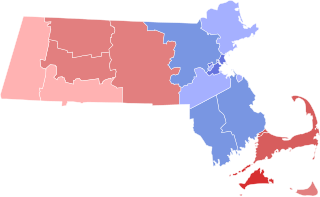
Charles Francis Adams Sr. was an American historical editor, writer, politician, and diplomat. As United States Minister to the United Kingdom during the American Civil War, Adams was crucial to Union efforts to prevent British recognition of the Confederate States of America and maintain European neutrality to the utmost extent. Adams also featured in national and state politics before and after the Civil War.

The Boston Brahmins, or Boston elite, are members of Boston's historic upper class. From the late 19th century through the mid-20th century, they were often associated with a cultivated New England accent, Harvard University, Anglicanism, and traditional British-American customs and clothing. Descendants of the earliest English colonists are typically considered to be the most representative of the Boston Brahmins. They are considered White Anglo-Saxon Protestants (WASPs).

Charles O'Conor was an American lawyer who was notable for his career as a trial advocate and candidacy in the 1872 presidential election. He was the first Catholic presidential nominee.

William Claflin was an American politician, industrialist, and philanthropist from Massachusetts. He served as the 27th governor of Massachusetts from 1869 to 1872 and as a member of the United States Congress from 1877 to 1881. He also served as chairman of the Republican National Committee from 1868 to 1872, serving as a moderating force between the Radical and moderate wings of the Republican Party. His name is given to Claflin University in South Carolina, a historically black college founded with funding from him and his father.

John Quincy Adams II was an American politician who represented Quincy in the Massachusetts House of Representatives from 1866 to 1867, 1868 to 1869, 1871 to 1872, and from 1874 to 1875.

The Adams Academy was a school for boys in Quincy, Massachusetts founded by President John Adams, who outlined his wishes for a school to be built on the site of John Hancock's birthplace in an 1822 deed of trust. Opened in 1872, the Academy operated as a college preparatory school for just over three decades, ultimately closing in 1908. Today, the property is still owned by Adams' original trust, the Adams Temple and School Fund, and its landmark Ware and Van Brunt building has been leased to the Quincy Historical Society for several decades.
The Adams family is a family of politicians from the United States. Below is a list of members.
William Phillips Sr. (1722–1804) was a Boston merchant, politician, and a major benefactor of Phillips Academy in Andover, Massachusetts.

The 1876 Massachusetts gubernatorial election was held on November 7. Incumbent Republican governor Alexander H. Rice was re-elected to a second term in office over former Minister to Great Britain Charles F. Adams.

The 1877 Massachusetts gubernatorial election was held on November 6. Incumbent Republican governor Alexander H. Rice was re-elected to a third term in office over former governor William Gaston.

The 1879 Massachusetts gubernatorial election was held on November 4.
The Boston mayoral election of 1899 occurred on Tuesday, December 12, 1899. Republican candidate Thomas N. Hart defeated Democratic nominee Patrick Collins and two other contenders, to become mayor for a second tenure. Incumbent mayor Josiah Quincy had announced in July 1899 that he would not seek re-election.
The Boston mayoral election of 1897 occurred on Tuesday, December 21, 1897. In a rematch of the previous election, Democratic incumbent mayor Josiah Quincy defeated Republican former mayor Edwin Upton Curtis to win re-election to a second term. In addition to Curtis, Quincy also defeated two minor challengers.
The Boston mayoral election of 1895 occurred on Tuesday, December 10, 1895. Democratic nominee Josiah Quincy defeated Republican incumbent mayor Edwin Upton Curtis and one other contender to win election to his first term.

The 1938 Massachusetts gubernatorial election was held on November 8, 1938.

The 1870 Massachusetts gubernatorial election was held on November 8.

The 1904 Massachusetts gubernatorial election was held on November 8, 1904. Incumbent Republican Governor John L. Bates ran for a third term, but was defeated by Democratic nominee William L. Douglas.

The 1868 Massachusetts gubernatorial election was held on November 3.

The 1867 Massachusetts gubernatorial election was held on November 5.

The 1833–34 Massachusetts gubernatorial election consisted of a popular election held on November 11, 1833 and a legislative vote held in January 1834. The task of electing the governor fell to the Massachusetts General Court because no candidate received the constitutionally required majority of the popular vote.



















